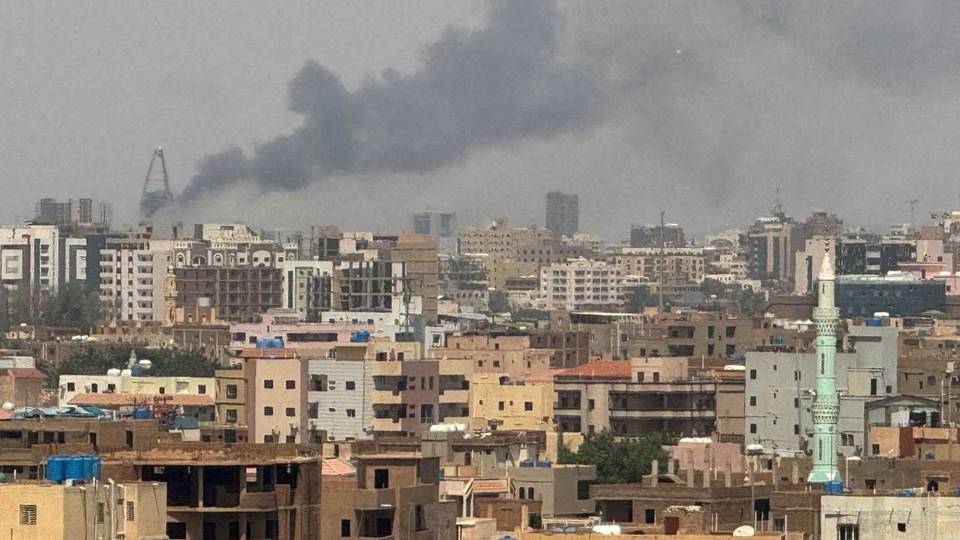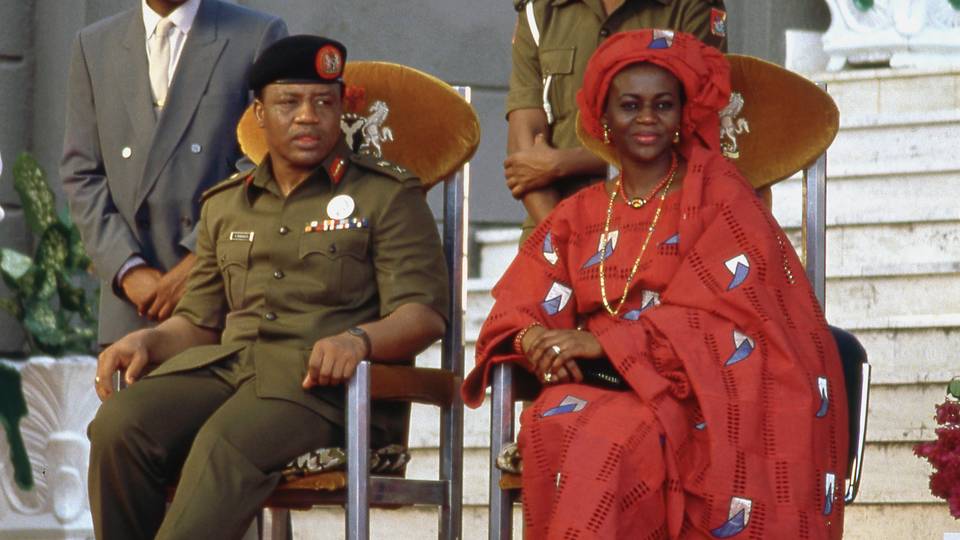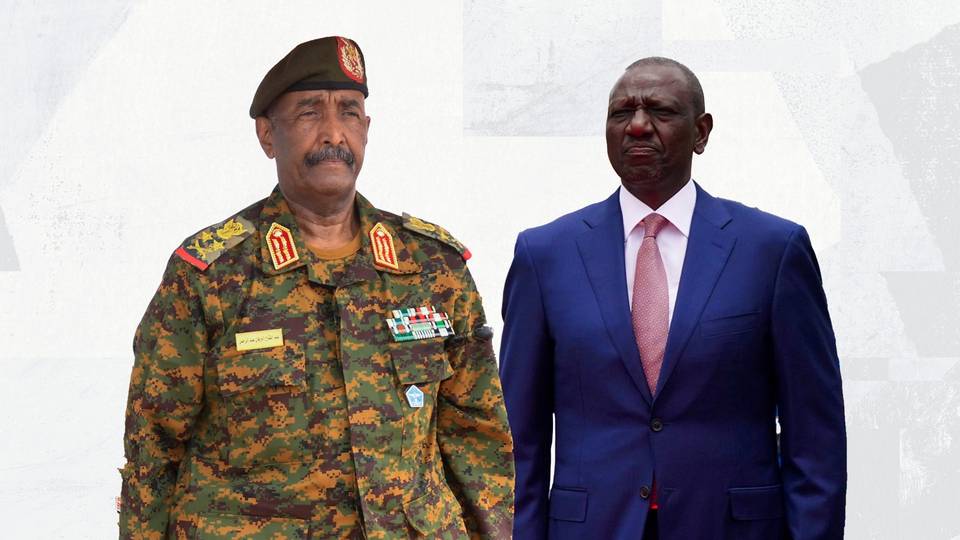Sport
Dollar
38,2552
0.34 %Euro
43,8333
0.15 %Gram Gold
4.076,2000
0.31 %Quarter Gold
6.772,5700
0.78 %Silver
39,9100
0.36 %War-torn Sudan's anguished cries for intervention and humanitarian assistance often drown in the din of the global debate on Israel's wrongs in Gaza and the geopolitical implications of the prolonged Russia-Ukraine conflict.

By Mazhun Idris
No war is better or worse than the other, yet the world's attention is invariably drawn to conflicts that dominate the headlines.
As Israel's genocidal pounding of Gaza completes a year and the Russia-Ukraine war assumes Cold War proportions, the humanitarian catastrophe unfolding in Sudan since April last year tragically seems to have escaped the world's attention.
Türkiye's recent call to action through the nation's ambassador to Sudan, Fatih Yildiz, is a crucial reminder that every humanitarian crisis deserves attention and intervention.
"Sudan must not be overlooked," the envoy said, stressing that it was contingent for the world to help the people of the North African country battle the combined humanitarian tragedies of war, hunger, and displacement.
At the just-concluded UN General Assembly, secretary-general António Guterres highlighted how the impunity of aggressor nations, inequity in global support for suffering populations, and myriad other challenges that could engulf the world. He conceded that nobody had any clue how this cycle would end.
Ironically, the UN secretary-general mentioned Sudan last while listing the significant conflicts currently raging in parts of the world.
Indeed, most speakers at the 193-member annual gathering, including leaders of African nations, did not pay much attention to the 18-month-long crisis ravaging Sudan.
Unrelenting siege within
According to the World Health Organisation (WHO), the conflict in Sudan involving the military, led by Gen Abdel Fattah al-Burhan, and the paramilitary Rapid Support Forces (RSF), headed by Mohamed Hamdan Dagalo, has resulted in at least 20,000 casualties to date.
Tom Perriello, the US special envoy to Sudan, paints a grimmer picture. He believes the death toll could reach an estimated 150,000 if the fighting continues unabated.
The battle of attrition between the Sudanese armed forces and the RSF has also uprooted 12 million people, which the UN says is the most significant displacement in any crisis.
Over 800,000 Sudanese refugees are currently seeking safety and protection in neighbouring countries. Violence has also forced over 220,000 returnees out of Sudan again.
Rival generals
Unlike other conflicts worldwide, increased international pressure may be vital to stemming the conflict in Sudan.
Richard Gowan, the UN's director for the International Crisis Group, wants the US to lead the effort to bring international attention to the war in Sudan.
Several regional and global peace efforts have failed to end the bloodshed so far, suggesting that the international community must now compel the warring parties to accept a ceasefire, agree to start a dialogue and bolster the humanitarian response to the crisis.
At the 79th Session of the UN General Assembly on September 24, US President Joe Biden urged "all countries to cut off weapons supplies to the country's rival generals".

Displaced and diseased
Sudan, with the third-largest land mass in Africa and a population of just around 50 million, has a long record of generously hosting refugees.
The North African country, with a history dating back to the Pharaonic period, once hosted the second-highest refugee population in Africa. It has been home to over one million refugees from South Sudan, Eritrea, Syria, Ethiopia, Chad, and the Central African Republic.
But Sudan has been inhospitable to even its own since the middle of last year.
While some refugees have already fled to as far as Yemen across the Red Sea, the United Nations High Commissioner for Refugees, Filippo Grandi, warns that some displaced families are now heading for Libya and Tunisia en route to Europe.
Recent assessments by UN organisations have revealed that "two out of three Sudanese lack access to healthcare". An estimated 19 million children have been forced out of school.
In September, the global health charity Médecins Sans Frontières (MSF) described the healthcare situation in parts of Sudan as "a crisis unlike any other".
An MSF manager, Dr Gillian Burkhardt, told TRT Afrika that she had seen many die in the first hour of hospitalisation "as they are already in a critical condition by the time they reach us".
She was specifically talking about the situation in the Nyala and Kas Rural hospitals in South Darfur, where 48 infants died due to sepsis between January and June.
The MSF’s report also cited 46 maternal deaths across the two hospitals during the January-August period, with 78% of maternal deaths occurring within the first 24 hours of admission.
El Fasher flashpoint
On September 27, shelling targeting a marketplace in the Sudanese city of El-Fasher led to 18 civilian deaths.
This happened barely four days after the world leadership assembled in New York for the UN conference, accentuating how the din over various other crises has drowned Sudan's pain.
Home to over 1.7 million people, including 500,000 internally displaced people, El Fasher is the capital city of North Darfur, along the Libya-Chad border. In the nearby Zamzam refugee camp, there is starvation as the UN struggles to mobilise funds for humanitarian aid.
The UN World Food Programme estimates that more than half of Sudan's population is experiencing hunger or nutritional deprivation of varying levels.
In February, the UN opened a $4.1 billion fundraiser to help stave off famine and assist refugees taking shelter in neighbouring countries. On August 1, famine was declared in the North Darfur Region, and more areas are now believed to be at risk.
Amid the all-encompassing gloom, individual initiatives are providing a sliver of hope.
Türkiye and Kuwait partnered to recently send an aid ship to Sudan, carrying around 2,500 tonnes of relief materials valued at over US $2 million. The aid package was received at Port Sudan on October 2.
➤Click here to follow our WhatsApp channel for more stories.
Comments
No comments Yet




















Comment